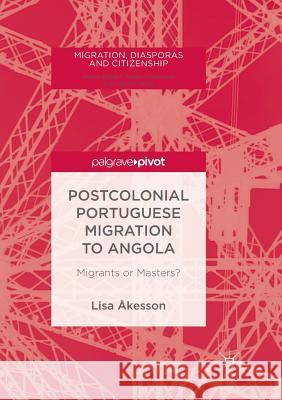Postcolonial Portuguese Migration to Angola: Migrants or Masters? » książka
topmenu
Postcolonial Portuguese Migration to Angola: Migrants or Masters?
ISBN-13: 9783030103064 / Angielski / Miękka / 2019 / 154 str.
Kategorie:
Kategorie BISAC:
Wydawca:
Palgrave MacMillan
Seria wydawnicza:
Język:
Angielski
ISBN-13:
9783030103064
Rok wydania:
2019
Wydanie:
Softcover Repri
Ilość stron:
154
Waga:
0.21 kg
Wymiary:
21.01 x 14.81 x 0.91
Oprawa:
Miękka
Wolumenów:
01
Dodatkowe informacje:
Wydanie ilustrowane











